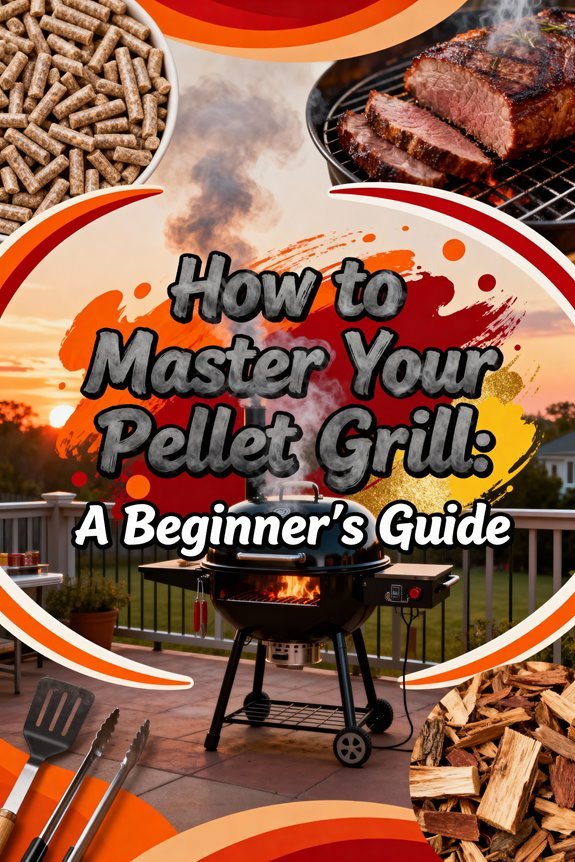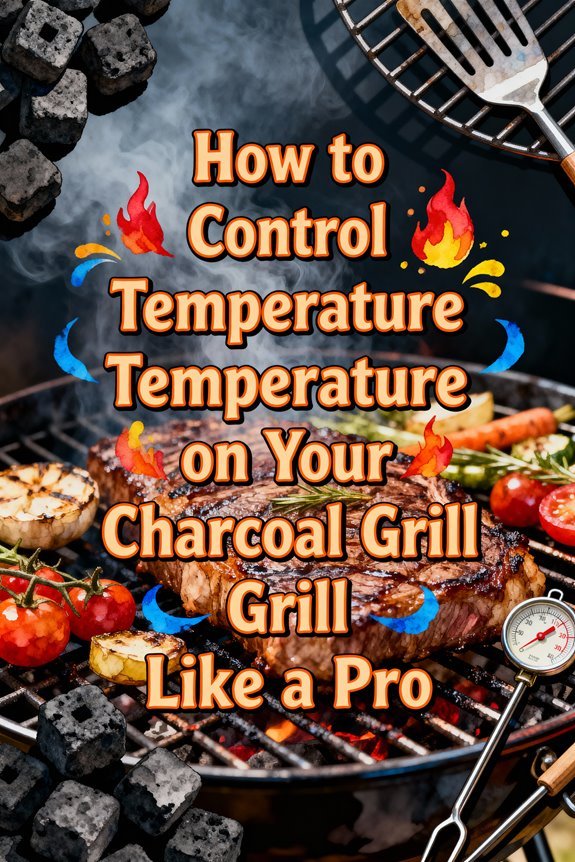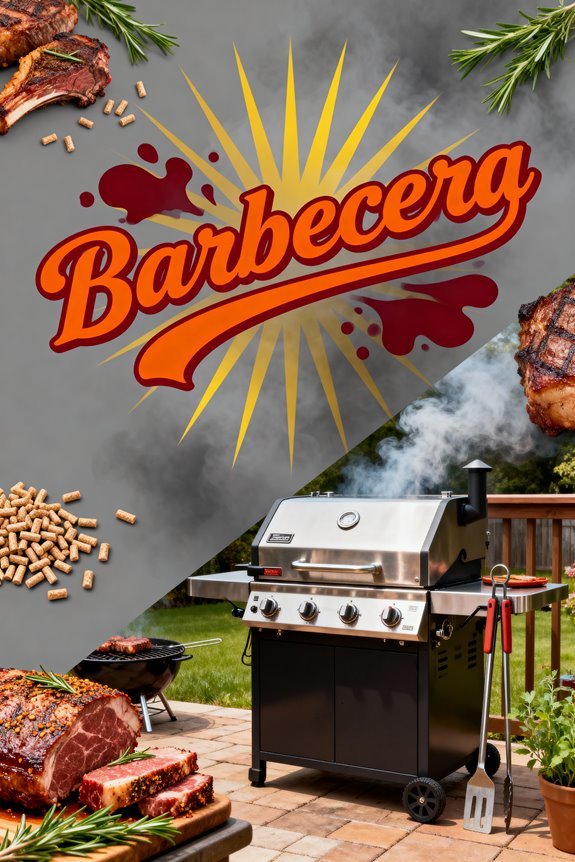To clean your BBQ grill grates effectively, start by ensuring the grill has completely cooled and put on heat-resistant gloves. Remove the grates and soak them in warm, soapy water to loosen stubborn grime. Use a wire brush or bristle-free scrubber to remove debris, then apply a natural cleaner like baking soda paste or a commercial degreaser for tough buildup. After thorough cleaning, season your grates with high smoke point oil for protection. Follow our detailed process to achieve professional-grade results.
Essential Pre-Cleaning Safety Steps
Five critical safety steps must be completed before you begin cleaning your BBQ grill grates. Start your pre-cleaning checklist by ensuring your grill has completely cooled and disconnecting all power sources. Clear the surrounding area of any flammable materials and keep children and pets at least three feet away from your workspace. Starting with a warm grill temperature allows for easier removal of food residue and grease buildup.
For your safety precautions, put on heat-resistant gloves and eye protection before handling any grill components. Position your grill on a flat, stable surface to prevent tipping during cleaning. Before handling any parts, gather your cleaning supplies including a stiff-bristled brush, scraper, and cleaning solutions. Using mild detergent solutions instead of harsh chemicals will help protect your grill’s finish while effectively removing grease and grime. Inspect the grill thoroughly for visible damage, checking for cracks in the grates, rust formation, or gas leaks if you’re working with a gas grill. Don’t proceed with cleaning if you uncover serious issues – address these issues first.
Removing Grates and Parts for Deep Clean
Once your grill has completely cooled, you’ll need to carefully remove the grates and other removable components for a thorough cleaning. Before starting, put on heavy-duty gloves to protect your hands from sharp edges and grime. You’ll want to learn how to safely remove any heat deflectors or flavorizer bars that might be blocking full access to your grates.
Using a quality wire brush tool helps ensure your grates get properly cleaned without damaging the surface. Start preparing your grill by clearing loose debris and using a putty knife to gently scrape hardened residue. If your grates are stuck, use appropriate tools like grill tongs or scrapers to lift them out. Place all removed parts on a clean, stable surface where they won’t get lost or damaged. Keep your cleaning supplies within reach to streamline the process and make the deep cleaning more efficient. A thorough cleaning helps prevent food residue contamination that could affect both safety and flavor quality. Consider soaking grates in warm soapy water to effectively loosen stubborn grime and grease buildup.
Natural and Chemical Cleaning Methods
When it comes to cleaning your grill grates, you’ll find both natural and chemical methods effective for different situations. Natural cleaners like baking soda paste, vinegar spray, and lemon juice offer safe, non-toxic solutions for regular maintenance. You can create a powerful cleaning reaction by soaking grates overnight in a vinegar and baking soda mixture. Proper safety precautions include wearing protective gloves and eyewear while cleaning to prevent injuries from sharp edges. For stubborn buildup, chemical effectiveness comes into play with commercial grill cleaners and degreasers. While these products work faster on tough residue, they require proper ventilation and protective gear. You’ll also want to take into account your grate material – use gentler methods on porcelain or enamel surfaces, while stainless steel can handle more aggressive cleaning. For an eco-friendly alternative, try the aluminum foil ball method or rub a cut onion across hot grates to break down grease naturally. Heating the grill before cleaning helps loosen residue and makes the scrubbing process more effective. For optimal cleaning results, heat your grill to 400 degrees before scrubbing to create steam that softens stubborn grime.
Best Tools for Tackling Stubborn Grime
Selecting the right cleaning tools for your BBQ grill can make the difference between a frustrating scrubbing session and an efficient cleaning process. While traditional wire brushes remain popular for their durability, several wire brush alternatives now offer enhanced cleaning efficiency without safety concerns.
For routine maintenance, consider bristle-free brushes like Grill Floss or synthetic fiber sponges. These tools effectively clean grates without the risk of loose bristles. When facing stubborn deposits, chainmail scrubbers and metal scrapers provide exceptional cleaning power while conforming to your grate’s shape. Regular cleaning routines significantly extend your grill’s lifespan by preventing corrosion and rust buildup. High heat preheating helps loosen tough grime before brushing the grates. For annual deep cleans, grill cleaning bricks can tackle the toughest residue, though you’ll need to thoroughly remove stone particles afterward. If you’re serious about grilling, professional-grade tools like steam cleaners and specialty kits offer maximum performance for long-term use. A gentle mixture of vinegar and salt can help break down rust when soaked overnight.
Seasoning Your Grates for Protection
To maximize your grill’s performance and longevity, proper seasoning of your grates is essential. The seasoning benefits include rust prevention, improved non-stick properties, and enhanced flavor development over time.
Start with thoroughly cleaned and dried grates. Select a high smoke point oil like vegetable, canola, or flaxseed oil for the best results. Begin the oil application by coating all surfaces with a thin, even layer using a paper towel. Heat your grill to medium-high (around 400°F) and let the oil polymerize for 10-60 minutes. Use a silicone basting brush to ensure even oil distribution across the grates.
You’ll need to repeat this process several times to build a durable protective coating. For stubborn rust spots, try soaking the grates in a vinegar solution before seasoning. Factory residue must be burned off on new grills before initial seasoning. Remember to maintain your seasoned grates by cleaning them before each use and re-seasoning every few months. Store your grill covered to protect the seasoning from moisture and weather damage.







